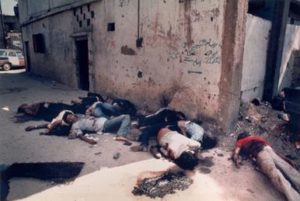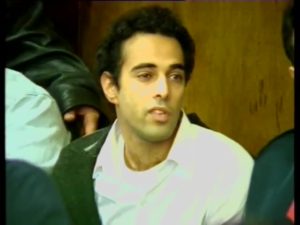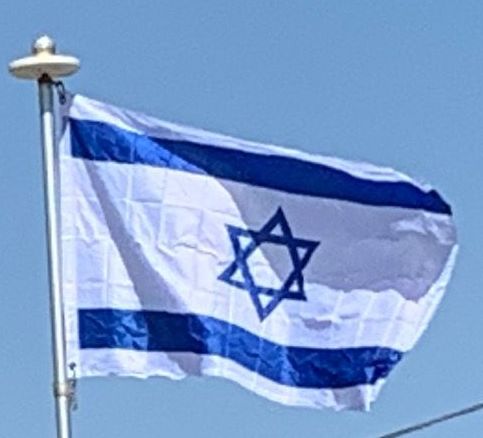On 7 June 1981, the Israeli air force destroyed Iraq’s sole nuclear reactor under construction just outside Baghdad, in order to impede Iraq’s nuclear weapons program. Following a series of PLO attacks in 1982, Israel invaded Lebanon that year to destroy the bases from which the PLO launched attacks and missiles into northern Israel. In the first six days of fighting, the Israelis destroyed the military forces of the PLO in Lebanon and decisively defeated the Syrians. An Israeli government inquiry—the Kahan Commission—would later hold Begin and several Israeli generals as indirectly responsible for the Sabra and Shatila massacre and hold Defense minister Ariel Sharon as bearing “personal responsibility” for the massacre. Sharon was forced to resign as Defense Minister.

In 1985, Israel responded to a Palestinian terrorist attack in Cyprus by bombing the PLO headquarters in Tunisia. Israel withdrew from most of Lebanon in 1986, but maintained a borderland buffer zone in southern Lebanon until 2000, from where Israeli forces engaged in conflict with Hezbollah. The First Intifada, a Palestinian uprising against Israeli rule, broke out in 1987, with waves of uncoordinated demonstrations and violence occurring in the occupied West Bank and Gaza. Over the following six years, the Intifada became more organised and included economic and cultural measures aimed at disrupting the Israeli occupation. More than a thousand people were killed in the violence. During the 1991 Gulf War, the PLO supported Saddam Hussein and Iraqi Scud missile attacks against Israel. Despite public outrage, Israel heeded American calls to refrain from hitting back and did not participate in that war.
In 1992, Yitzhak Rabin became Prime Minister following an election in which his party called for compromise with Israel’s neighbors. The following year, Shimon Peres on behalf of Israel, and Mahmoud Abbas for the PLO, signed the Oslo Accords, which gave the Palestinian National Authority the right to govern parts of the West Bank and the Gaza Strip. The PLO also recognized Israel’s right to exist and pledged an end to terrorism. In 1994, the Israel–Jordan peace treaty was signed, making Jordan the second Arab country to normalize relations with Israel. Arab public support for the Accords was damaged by the continuation of Israeli settlements and checkpoints, and the deterioration of economic conditions. Israeli public support for the Accords waned as Israel was struck by Palestinian suicide attacks. In November 1995, while leaving a peace rally, Yitzhak Rabin was assassinated by Yigal Amir, a far-right-wing Jew who opposed the Accords.

Under the leadership of Benjamin Netanyahu at the end of the 1990s, Israel withdrew from Hebron, and signed the Wye River Memorandum, giving greater control to the Palestinian National Authority. Ehud Barak, elected Prime Minister in 1999, began the new millennium by withdrawing forces from Southern Lebanon and conducting negotiations with Palestinian Authority Chairman Yasser Arafat and U.S. President Bill Clinton at the 2000 Camp David Summit. During the summit, Barak offered a plan for the establishment of a Palestinian state. The proposed state included the entirety of the Gaza Strip and over 90% of the West Bank with Jerusalem as a shared capital. Each side blamed the other for the failure of the talks. After a controversial visit by Likud leader Ariel Sharon to the Temple Mount, the Second Intifada began. Some commentators contend that the uprising was pre-planned by Arafat due to the collapse of peace talks. Sharon became prime minister in a 2001 special election. During his tenure, Sharon carried out his plan to unilaterally withdraw from the Gaza Strip and also spearheaded the construction of the Israeli West Bank barrier, ending the Intifada. By this time 1,100 Israelis had been killed, mostly in suicide bombings. The Palestinian fatalities, from 2000 to 2008, reached 4,791 killed by Israeli security forces, 44 killed by Israeli civilians, and 609 killed by Palestinians.
